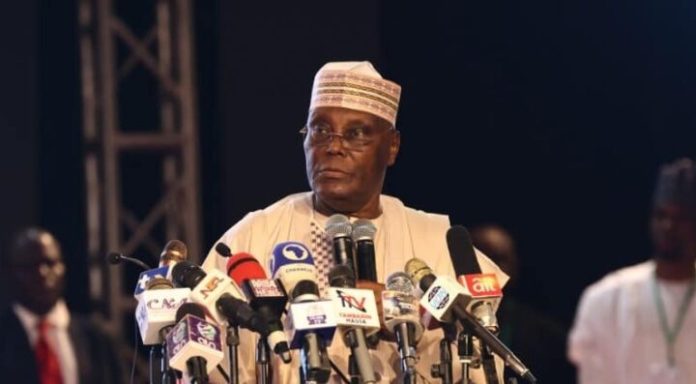Olusegun Dada, special assistant to President Bola Tinubu on social media, says Atiku Abubakar, a former vice-president, “fumbled the numbers” on the $3.3 billion emergency loan deal.
On Thursday, Abubakar, who was the presidential candidate of the Peoples Democratic Party (PDP) asked the federal government to shed more light on the transaction.
READ ALSO: Reno Omokri hails Tinubu for celebrating him
Although the NNPC had published details of the loan in a recent document, titled, ‘Frequently Asked Questions (FAQs) – Project Gazelle’, the politician questioned why Project Gazelle Funding Limited — a special purpose vehicle (SPV) driving the deal — was incorporated in the Bahamas, a region he described as “a haven for financial secrecy”.
Responding in a post on X, Dada said Abubakar is “late to the party, as usual”, stating that the presidency had explained the deal to Nigerians.
“Project Gazzelle is such a straightforward deal that I do not expect Alhaji Atiku, who prides his whole political aspirations on being an economic reformer, to fumble the simple numbers behind it,” Dada posted.
“For record purposes and to save Alhaji from his self-imposed mystery, here are some explanations to his questions about the conditionalities of the loan in a simpler language.
“The facility is a forward sales agreement between NNPC limited and an SPV (the buyer) where a predetermined number of barrels of oil is sold in advance at an agreed price.
“The sales allow the seller (NNPCLtd in this case) to use the received payment to solve critical and urgent problems with forex scarcity as the problem in Nigeria’s case.
“A lower benchmark is usually adopted as a safe haven for the buyer (the SPV) as oil price tends to remain unstable most times.
“For repayment, an eventual increase in oil prices will result in the SPV returning all excesses to the seller (NNPC Ltd) while the risk which could lead to a rearrangement of the terms is a significant decrease in the agreed price (this case $65 per barrel).
“Oil has been averaging $70-75 per barrel since the deal was agreed, and if things stay the same way, Nigeria will be getting refunds of excess amounts from the SPV once the payment is concluded.”
























